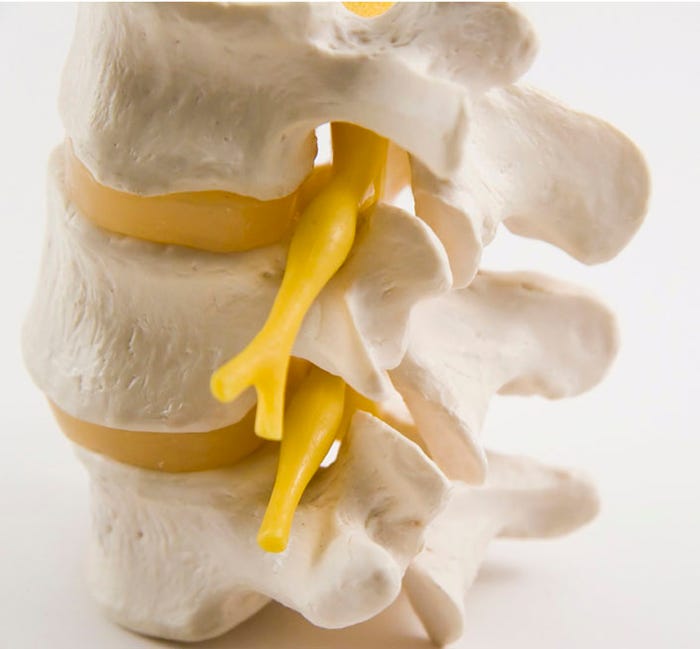Ulrich Medical employs Zwick’s Amsler HC25 to simulate real-world stresses on spinal systems for quality control
January 11, 2012
Many patients suffering from such debilitating conditions as disc degeneration have benefitted from spinal stabilization procedures, which aim to alleviate pain while facilitating movement. But in order for spinal implant systems to be successful, it is imperative that they can withstand the stresses to which the spine is regularly subjected. To ensure that its spinal implant systems can endure these everyday rigors, medical device manufacturer Ulrich Medical (Ulm, Germany) turned to Zwick GmbH (Ulm, Germany) for a servo-hydraulic testing system capable of simulating real-world stresses.
|
The Amsler HC25 testing system enables fatigue testing of spinal column implants for quality control purposes. |
Located in the same city, Ulrich Medical initially partnered with Zwick for contract testing services. "It was during the delivery of such services that Ulrich was able to become familiar with both the quality and precision of our equipment and the depth of medical device development expertise possessed by our staff," notes Erik Berndt, Zwick's industry manager, medical.
Looking to move some implant testing in-house, Ulrich Medical invested in Zwick's Amsler HC25 servo-hydraulic testing system, which features a maximum test load of 25 kN, to perform extensive fatigue strength testing for quality control and research purposes. "The generation of an S-N curve is used to evaluate the fatigue strength of the implant to be certain that no mechanical failure will occur after the implantation of the spinal implant into the human body," explains Tobias Winkler, development engineer, implants and instruments, at Ulrich GmbH.
Equipped with testXpert II research software and new testControl II control electronics, the Amsler HC25 system has enabled Ulrich Medical to perform a variety of static and dynamic tensile, compression, and torsion tests on its spinal implant products according to ISO, FDA, and ASTM standards. "Some are custom-made setups and test procedures," Winkler says. "These tests can optionally be performed under physiological--in vivo--conditions using a Zwick tempering bath."
In particular, the implant manufacturer employs the machine for quasistatic, oscillating, pulsating compression, and shear tests, which provide a simple simulation of the typical dynamic loading experienced by the spine. However, the testing machine has also allowed the company to simulate the effects of posture changes on its spinal implants. Using a torsion device, the tester is capable of applying a multiaxial static or oscillating load to the spinal implant. In addition, operators have the ability to apply axial loading with superimposed torsion loading.
"Safety of the products we develop is of the greatest concern," Winkler states. "The Zwick equipment is more technically advanced and the company has a depth of experience in the field of fatigue testing. This experience allowed our engineers to generate data that assures [that] the implants are designed for safety along with functionality."
You May Also Like



